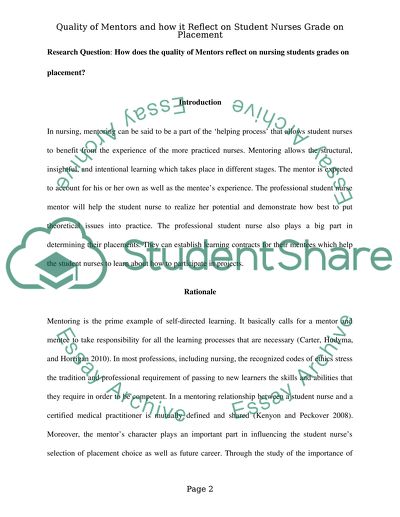Cite this document
(“How does the quality of mentors reflect on student nurses grade on Essay”, n.d.)
Retrieved from https://studentshare.org/nursing/1481315-how-does-the-quality-of-mentors-reflect-on-student
Retrieved from https://studentshare.org/nursing/1481315-how-does-the-quality-of-mentors-reflect-on-student
(How Does the Quality of Mentors Reflect on Student Nurses Grade on Essay)
https://studentshare.org/nursing/1481315-how-does-the-quality-of-mentors-reflect-on-student.
https://studentshare.org/nursing/1481315-how-does-the-quality-of-mentors-reflect-on-student.
“How Does the Quality of Mentors Reflect on Student Nurses Grade on Essay”, n.d. https://studentshare.org/nursing/1481315-how-does-the-quality-of-mentors-reflect-on-student.


